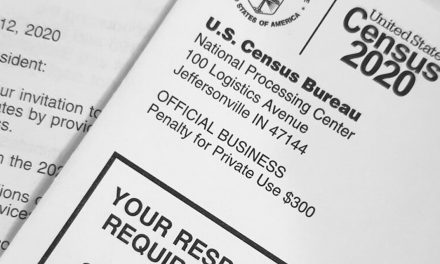
We need a new business model for the postal market
Paul Jackson, Chairman, Triangle Management Services
World Mail Review May 2008 The Current Approach is at least a century old
When people used to write to each other a wholly owned network of collection points and nationwide daily delivery was needed to oil the wheels of communication and business– but surely not now?
If you were to set up a national mail service today rather than in the nineteenth century would you start from here? Would you really offer a daily delivery to remote areas? Would a system that integrates the whole process be owned by one organisation? I do not think so.
So what should we do?
Create Distinct Business Models
Let us first simplify and cut to the basics. Let us identify whether there a number of sustainable business models within the current classic mail organisation.
There is still a requirement to collect and sort for the declining part of the market, namely general business and personal mail, and then distribution and final delivery for all mail users But are some of these users in such distinct categories that they actually require the development of separate business units that would provide a more economic service? Direct Marketing and Transactional Mail are two such categories that spring to mind. And might not the creation of separate business approaches lead to the holy grail of an expansion in the use of mail?
No doubt focus would also lead to another sacred cow challenge, namely charging the going rate for the bigger users versus the subsidised small volume letter/parcel. In other words higher prices for the occasional or smaller user, which after all happens in most industries. The price of mail has been set over the years by the cost of the whole operation not what the relevant market will bear.
Conversely in a market driven pricing structure, nationwide next day letter delivery is one of the last remaining bargains and particularly for the “must be” next day market a very under priced product.
Collection and Delivery
What would a separate collection and delivery business need to do to create an optimum business model? What would it do differently if it was not part of a group covering the whole operations cycle?
Would it involve itself in other local activities by sub contracting the collection or delivery to similar organisations such as the baker, milkman (at least in the UK), newsagent etc.? Could it use its facilities during the down time for home delivery of the weekly supermarket order? Would it create or expand a market like more local bus services did?
Around 80% of current postal traffic does not require collection any more and most need day definite delivery rather than a six days a week service. Should that traffic be subsidising the other 20%? No.
If Collection and Delivery became a separate business, competition, so much desired by regulators, would probably develop further. More importantly the customer would only be paying for what he requires, which is how most businesses work. Why should posts be any different? Innovation would come more to the fore and clear geographical areas of losses would be identified which might then require local subsidies and/or a change of product specification.
Sortation
The postal business activity that would win game set and match as a separate business would be a stand alone 24/7 sortation company. This is the most capital intensive part of the current postal model and most postal organisations are getting less than 50% utilisation of this equipment. As competition develops this underutlisation is going to get worse as expensive sortation equipment proliferates.
An INDEPENDENT sortation company or companies would develop a sortation pricing sortation strategy that could be day/night; time of the week, and even time of the year sensitive; and available to all collection and delivery companies.
Perhaps the sortation part of current postal businesses could break out to become this independent, separate company. This concept is currently being discussed in the UK by the regulator who after five years has not stimulated any real competition or innovation in the market.
There is a school of thought that if this were to happen then sortation would need to be linked with the transport network in a single business model. I am not so sure. The main argument seems to be the capacity of the local receiving (delivery) depots but if the market was being priced in the normal way of any capital intensive/depot network then again off peak/peak pricing would come into play, and peak time congestion would be avoided.
It could be argued that sortation separation has already occured in the USA where the outward sorting and distribution that is actually done by USPS is now essentially that 20% minority of personal and small business mail. The big difference to the emerging competitive business models in Europe is that USPS is guaranteed the last mile distribution, something which regulators have surprisingly steered clear of in Europe.
There is no doubt that an independent 24/7 sortation market has developed in the USA with some very low prices being quoted at off peak times but then that is what a free market is all about. And in the US UPS and Pitney Bowes compete with a successful DHL Global Mail for a share of this business.
Distribution and Transport
This is clearly a separate and well defined activity. Anybody who has been in transport more than five minutes knows that a wholly owned fleet and distribution is not economic. The successful transport business always ends up with outsourcing at least 20% of its business or setting out to fill the troughs and/or imbalances by carrying third party traffic.
This approach currently does not happen in the postal world but under a separate business it surely would mean a lower cost model and the achievement of higher service levels as network economics were not compromised. No doubt new infill products would develop like warehousing and logistics for the fast growing E-Commerce market.
Conclusion
I doubt if there is any company or business model that was operating one hundred years ago that is still in existence except the posts and maybe the rail companies. In the UK the nationalised rail company was split into distinct divisions, separating the running of the track and stations from the several rail companies which compete for franchise contracts. There are different opinions as to whether this has worked but there is no doubt that the market has grown considerably and those who can pay more (the commuter) are certainly now doing so.
Of course this article is written with a degree of leaving the real world behind. Politicians are not business modelers. There is the small matter of well embedded unions which have no interest at all in seeing the break up of the monoliths they control. But this does not stop some blue sky thinking now and again!!













